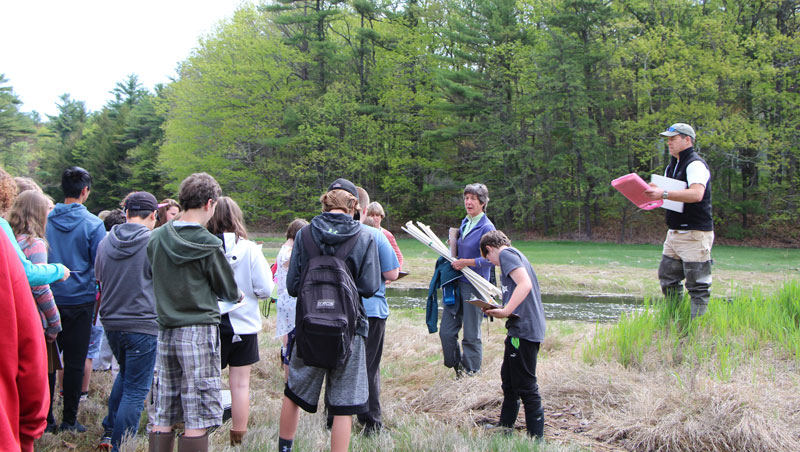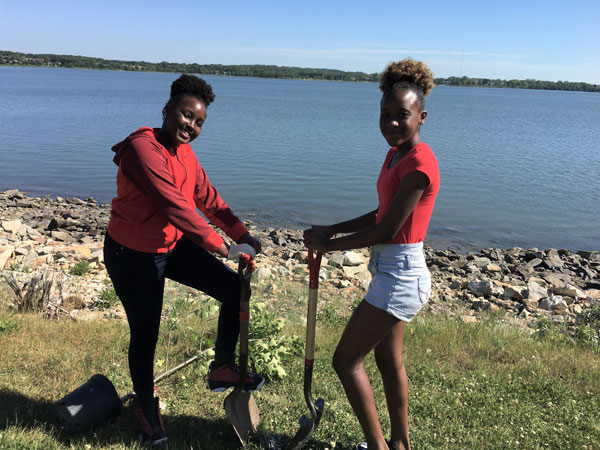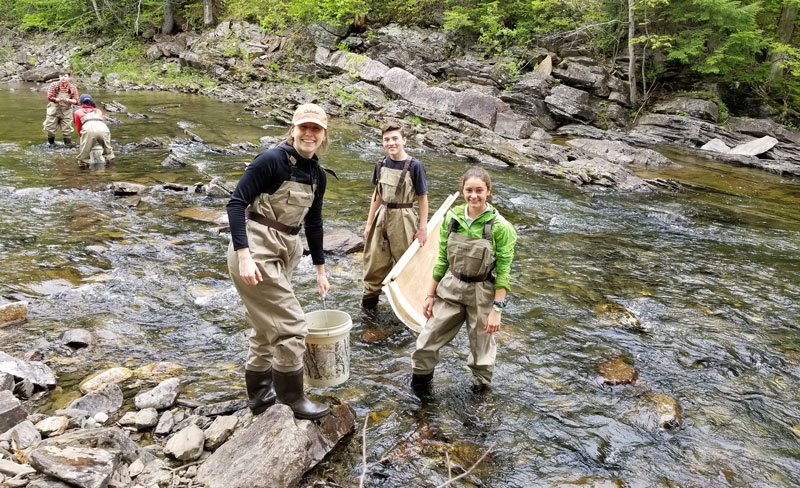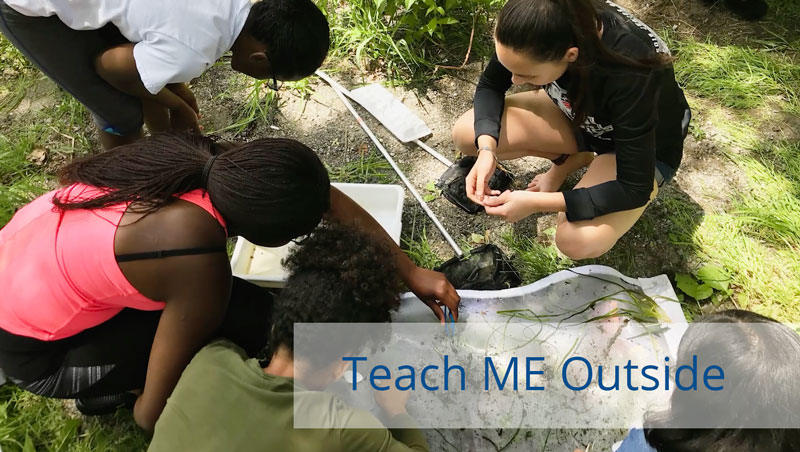Place-Based Education Engages Thousands
of K-12 Students Around Casco Bay
Schools and Nonprofits Collaborate to Provide Environmental Education
WHY IT MATTERS
Thousands of K-12 students in the Casco Bay region participate in community-based environmental learning programs run by schools, nonprofits, and government agencies. These in-school or field-based programs educate youth about the environment while connecting them to their communities. Community-based learning has many positive impacts, from enhancing critical thinking skills and increasing environmental literacy, to providing youth with a much-needed connection to nature and to real-world issues in their communities. These education programs foster a greater understanding of local environmental impacts and can lead to volunteer stewardship efforts that have a positive effect on the Casco Bay ecosystem.STATUS
In 2020, CBEP canvassed partner nonprofits and land trusts that provide K-12 environmental education programs. Their responses showed that place-based education is reaching more than 7,900 students in most of the watershed’s communities.Participating Students by Grade Level
Alignment with Next Generation Science Standards

expeditionary learning
Several schools around Casco Bay have long-standing expeditionary learning programs, including Casco Bay High School and King Middle School in Portland; Brunswick Junior High School; and West Bath Elementary School. Harpswell Coastal Academy has a project-based learning approach to education that offers similar, real-world experiences beyond the classroom. Schools that employ expeditionary learning choose a topic for their “learning expedition” and integrate the topic into all subjects, as opposed to students learning unrelated content in each class.A Changing Education Landscape
The COVID-19 pandemic created new educational challenges as schools shifted to a combination of in-person, virtual, and hybrid learning. In response, environmental organizations and state agencies active around Casco Bay moved quickly and nimbly to provide resources and creative curricula for students. The organizations received funding from the Maine Mathematics and Science Alliance Teach ME Outside Initiative and Community Learning for ME, a virtual space to support teachers and families during the pandemic.
One nonprofit noted that their biggest success is “working with teachers who are eager to bring real, local issues and collaborative problem solving to their students.”
Successes and challenges
- Some of the challenges organizations face in carrying out K-12 educational programs include staff capacity issues, funding, scheduling, and the “constant shuffling of science curriculum” that one organization says puts them at risk of program cancellation if they “can’t adapt quickly to content and standards.”
- Many local organizations recognize the importance of instilling an appreciation for the natural world at an early age, and to that end, are creating early childhood place-based learning programs.
- Partner organizations need support and training in science standards, to increase linkages between these organizations and school systems. Schools also need support and training on incorporating place-based learning into their existing curricula.
- The most successful education programs seem to be those with long-standing connections with the schools in their area, where teachers reach out regularly and the provider organizations share resources.
View a PDF version of this page that can be downloaded and printed.
View references, further reading, and a summary of methods and data sources.
Selected data and data analysis code for certain indicators are available for review.
STATE OF CASCO BAY
Drivers & Stressors
What’s Affecting the Bay?
Human Connections
What’s Being Done?
If you would like to receive a printed State of Casco Bay report, send an email request to cbep@maine.edu.
This document has been funded by the U.S. Environmental Protection Agency under Cooperative Agreements #CE00A00348-0 and #CE00A00662-0 with the University of Southern Maine.
Suggested citation: Casco Bay Estuary Partnership. State of Casco Bay, 6th Edition (2021).
Photo at top of page: Harpswell Heritage Land Trust


